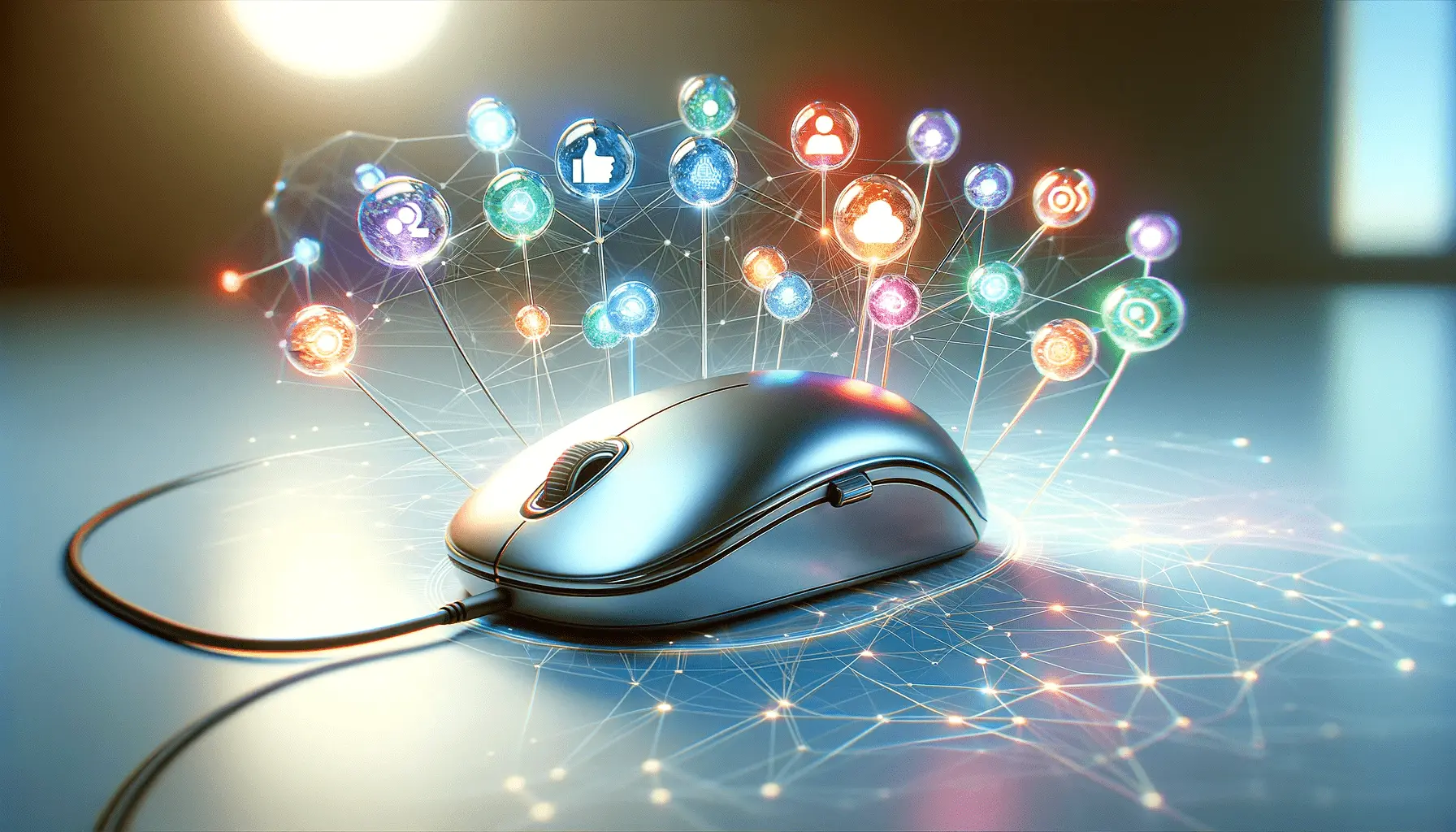In today’s digital age, consumers are exposed to advertisements on every media.
Amidst this overload, the quest for authenticity in social media advertising has become paramount.
Consumers desire genuine connections and truthfulness, making authenticity a necessity in building trust and loyalty.
However, what is authenticity in social media advertising, and why has it become such an integral part of marketing campaigns?
- Understanding Authenticity in Social Media Advertising
- The Importance of Meaningful Connections in Marketing
- Strategies for Developing Authentic Social Media Ads
- Case Studies: Standout Brands Embracing Genuine Advertising
- Challenges to Authenticity in Social Media Advertising
- Embracing Authenticity: The Path Ahead to Meaningful Connections in Social Media Marketing
- Frequently Asked Questions About Authenticity in Social Media Advertising
Understanding Authenticity in Social Media Advertising
Authenticity in social media advertising is the process of brands being faithful to their values, honest in their communication, and sincere in their engagement with people.
It’s a move away from high-gloss, sales-oriented content and toward a more conversational, human tone.
This adjustment recognizes that consumers are more sophisticated than ever and can quickly spot insincere or manipulative attempts.
A number of reasons are responsible for the increasing significance of authenticity:
- Consumer Skepticism: As there has been a growth in misinformation and misleading advertising, consumers have become increasingly skeptical of conventional advertising. Consumers want brands to be transparent and honest in communications.
- Desire for Connection: Social media channels were created for connection and community. Users want brands to engage in meaningful discussions instead of merely selling products.
- Impact of Peer Recommendations: Individuals believe suggestions from friends, relatives, and even strangers more than brand ads. Genuine content tends to reflect these peer-to-peer conversations, thus being more effective.
Authenticity and building authentic connections in social media marketing is not a trend; instead, it’s the need of every brand that wishes to establish long-lasting relationships with audiences.
As we examine the topic further, we’re going to explore why authenticity in relationships is valuable when it comes to marketing, and how exactly that could be achieved.
Authenticity in social media advertising means staying true to your brand’s values, communicating transparently, and building genuine connections with your audience.
The Importance of Meaningful Connections in Marketing
In the competitive landscape of social media marketing, meaningful connections with your audience aren’t just preferable—they’re essential.
As consumers become increasingly sophisticated, they’re seeking out brands that share their values and are genuinely interested in them.
Let’s discuss why authenticity is so important in marketing and how it can transform your brand’s relationship with its audience.
Establishing Trust with Authentic Content
Trust forms the foundation of any meaningful relationship, including those between brands and consumers.
When your content reflects honesty and transparency, it signals to your audience that your brand is reliable and sincere.
This trust is cultivated by:
- Consistent Messaging: Ensure that your brand’s values and messages are uniform across all platforms, reinforcing your commitment to authenticity.
- Transparent Communication: Openly offer information about your product or service, its strengths, and even areas of needed improvement. This kind of honesty fosters credibility.
- Engaging Storytelling: Share real stories representing your brand’s experiences, challenges, and successes. This authentic storytelling adds a human touch to your content.
As you concentrate on genuine content, you not only build trust but also cultivate a loyal following that values the integrity of your brand.
The Impact on Consumer Loyalty and Engagement
Engaging connections significantly influence consumer behavior, driving both loyalty and involvement.
Consumers who feel a genuine connection to your brand are more likely to:
- Make Repeat Purchases: Loyal consumers will choose your brand over others, fostering ongoing sales.
- Become Brand Advocates: Satisfied consumers turn into brand ambassadors, sharing positive messages within their networks and expanding your reach.
- Provide Valuable Feedback: Engaged customers are more willing to give tips and suggestions to help your brand grow and continuously improve.
Furthermore, authentic engagementGenuine and meaningful interactions between a brand and its audience, typically characterized by honesty and sincerity. can transform a passive follower into an active customer and, eventually, a dedicated brand advocate who promotes your business.
This type of organic growth is a direct result of the meaningful connections you establish through genuine interactions.
In essence, embracing authenticity in your campaigns not only differentiates your brand in a saturated market but also lays the groundwork for long-term consumer relationships.
As we explore methods of creating authentic social media ads in the next section, consider how your brand can embody honesty and openness to forge these invaluable connections.
Brands that prioritize authentic connections over purely promotional messaging create loyal communities, drive higher engagement, and strengthen brand reputation.
Strategies for Developing Authentic Social Media Ads
In the ever-changing social media landscape, developing ads that speak authentically to your audience is essential.
Consumers are becoming more skilled at recognizing authentic content versus blatant promotions.
To establish trust and create meaningful relationships, brands need to use strategies that value authenticity.
Let’s discuss effective strategies to do so.
Leveraging User-Generated Content
Adding user-generated contentContent created by users, often shared on social media platforms, showcasing their experiences with a brand's product or service. (UGCAn abbreviation for User-Generated Content, referring to any content created and shared by users rather than brands.) to your social media advertisements can significantly enhance their authenticity.
UGC involves content posted by your customers, such as reviews, testimonials, or photos featuring your product or service.
This approach has several advantages:
- Enhanced Credibility: Potential consumers are more likely to trust recommendations from friends or peers than content created by a brand. Showcasing real experiences from actual users builds credibility for your business.
- Increased Engagement: Encouraging your audience to create content fosters a sense of community and ownership, which naturally leads to higher engagement.
- Cost-Effective Content Creation: Relying on user-generated content reduces the need for large-scale in-house production, saving both time and money.
To effectively leverage UGC:
- Invite satisfied customers to share their experiences on social media platforms.
- Host contests or campaigns that incentivize users to create and publish content related to your brand.
- Always obtain permission before using user-generated content in your ads and give proper credit to the creators.
Collaborating with Influencers Who Identify with Brand Values
Collaborating with influencers can expand the reach and credibility of your brand, provided they genuinely identify with your brand values.
Authentic influencer partnershipsCollaborations between brands and social media influencers to promote products or services. offer several benefits:
- Reach Targeted Audiences: Influencers often have loyal followings in specific niches. Partnering with those whose audiences align with your target market can significantly enhance your campaign’s effectiveness.
- Build Trust: Influencers who genuinely support your brand can transfer their credibility to your products or services, establishing trust among their followers.
- Provide Unique Content: Influencers bring their own creativity and perspective to your brand, offering fresh, engaging content that resonates with audiences.
To maximize the benefits of influencer collaborations:
- Select influencers whose personal brand and identity align with your company’s values.
- Prioritize authenticity over follower count; micro-influencers often have higher engagement and stronger connections with their audience.
- Establish clear communication and collaboration guidelines to maintain brand consistency.
Clear Communication and Disclosure Practices
Transparency is one of the cornerstones of authenticity in social media advertising.
Clear and truthful communication helps build and sustain consumer trust.
Best practices include:
- Honest Messaging: Ensure that all claims in your ads are truthful and supported by evidence. Avoid exaggerated or misleading statements.
- Clear Disclosure: When using influencer collaborations or sponsored content, clearly disclose these partnerships in accordance with relevant advertising regulations.
- Open Dialogue: Create a space where consumers feel comfortable sharing their opinions and questions. Responding to feedback sincerely and promptly demonstrates your brand’s commitment to transparency.
By employing these strategies, your company can create social media advertisements that not only capture attention but also build long-lasting, authentic connections with your audience.
Authentic advertising is not just a passing trend; it’s a necessary approach to fostering genuine engagement in the digital age.
To create authentic social media ads, brands can leverage user-generated content, collaborate with aligned influencers, and maintain transparent communicationAn open and honest exchange of information between a brand and its audience, often involving clear disclosures and truthful messaging..
Case Studies: Standout Brands Embracing Genuine Advertising
Gleaning real examples of successful authentic advertising strategies from actual brands can provide valuable insight and inspiration.
The following case studies highlight brands that have excelled in using authenticity to build lasting connections with their audiences.
Patagonia’s Green Commitment to Sustainability
Patagonia, a sportswear brand, has long been renowned for its environmental activism.
This commitment is reflected in their marketing strategy, resonating strongly with their environmentally conscious customers.
By openly sharing their sustainability efforts and encouraging consumers to buy only what they truly need, Patagonia has built a dedicated following of loyal customers who value the brand’s transparency and integrity.
Wendy’s Engaging Social Media Presence
Wendy’s, the fast-food chain, has made a name for itself on social media by adopting a witty and unapologetically honest tone.
Their playful, often sarcastic interactions with both customers and competitors have attracted widespread attention.
This authentic and light-hearted approach has made the brand more relatable and strengthened its connection with a younger, digitally-savvy audience.
Glossier’s Community-Driven Marketing
Glossier, a beauty company, has built a successful community-driven marketing strategy by focusing on customer experiences and feedback.
The brand engages directly with its audience on social media and frequently incorporates user-generated content into its campaigns.
This authentic engagement has fostered a sense of inclusivity and loyalty among its customers, who feel acknowledged and appreciated.
Spotify’s Personalized Wrapped Campaigns
Spotify’s annual ‘Wrapped’ program offers users a personalized summary of their listening habits over the year.
By encouraging users to share these unique reports on social media, Spotify creates an interactive and highly authentic experience.
This personalized connection resonates with users on an individual level, leading to massive social sharing and increased engagement.
CoverGirl’s Influencer Collaborations
CoverGirl has successfully revitalized its brand through strategic partnerships with social media influencers who genuinely align with the brand’s values.
By investing in influencer collaborations and digital marketing, CoverGirl has expanded its reach to new audiences.
This approach highlights the power of authentic influencer marketing in building brand credibilityThe perception of a brand's trustworthiness and reliability based on its actions and communications. and consumer trust.
These case studies demonstrate that authenticity in advertising is not a one-size-fits-all approach.
By staying true to their values, engaging meaningfully with their audiences, and maintaining transparency, brands can establish trust and foster long-term relationships with their customers.
Successful brands like Patagonia, Wendy’s, and Glossier demonstrate how authenticity fosters stronger consumer connections and builds lasting brand loyalty.
Challenges to Authenticity in Social Media Advertising
In the rapidly evolving world of social media advertising, maintaining authenticity is both essential and challenging.
As brands strive to engage genuinely with their audiences, they face several obstacles that can detract from their authentic presence.
Recognizing these challenges is the first step toward developing effective solutions to overcome them.
Balancing Promotional Content with Authentic Engagement
One of the biggest challenges brands face is striking the right balance between promotional content and genuine engagement.
While advertising primarily aims to promote products or services, an excessive focus on sales can alienate audiences seeking meaningful interactions.
To overcome this challenge:
- Prioritize Value-Driven Content: Share content that educates, entertains, or inspires your audience, rather than focusing solely on sales pitches. Content that offers value builds trust and strengthens your brand’s authenticity.
- Employ Two-Way Communication: Actively engage with your audience’s comments and feedback. Responding thoughtfully fosters a sense of belonging and trust, making consumers feel heard and valued.
When promotional efforts are embedded within genuine engagement, brands can achieve their marketing goals without sacrificing authenticity.
Controlling Audience Demands for Openness
Today’s consumers expect transparency from brands, especially on social media.
They are adept at identifying inauthenticity and are quick to call out deceptive or misleading content.
To meet these expectations and maintain authenticity:
- Be Open About Business Practices: Provide insights into your company’s values, operations, and decision-making processes. This openness fosters trust and strengthens brand credibility.
- Acknowledge Errors Promptly: Mistakes happen. When they do, take responsibility publicly and outline clear steps to resolve the issue. Owning up to mistakes demonstrates integrity and reinforces your commitment to authenticity.
Transparent communication humanizes your brand and makes it relatable to your audience.
Handling Negative Feedback Authentically
Negative feedback is an inevitable part of having a social media presence.
However, handling criticism authentically is key to maintaining brand credibility.
Here’s how brands can navigate negative feedback:
- React Promptly and Responsibly: Address criticism swiftly and with empathy. A timely, sincere response demonstrates that your brand values customer feedback and is willing to improve.
- Take Discussions Offline When Necessary: For complex or sensitive issues, invite the individual to continue the conversation privately. This ensures a more constructive resolution while showing accountability.
Effectively managing negative feedback signals your commitment to customer satisfaction and continuous improvement.
Guaranteeing Consistency Across Platforms
Maintaining a consistent brand voice and message across multiple social media platforms is essential for authenticity.
Inconsistencies can confuse your audience and weaken your brand identity.
To ensure consistency:
- Develop Strong Brand Guidelines: Establish comprehensive guidelines for your brand’s voice, tone, and messaging. Ensure all content creators adhere to these standards across different platforms.
- Sync Content Strategies: Coordinate content calendars and campaigns to maintain aligned messaging. While tailoring content to suit each platform’s format, keep the brand’s core message consistent.
Consistency builds brand recognition, fosters trust, and reinforces your brand’s authenticity.
By embracing these challenges and proactively addressing them, brands can navigate the complexities of social media marketing.
In doing so, they can foster genuine connections, build long-term trust, and enhance their overall brand authenticity.
Maintaining authenticity can be challenging due to the pressure to balance promotional content with genuine engagement. Addressing negative feedback and ensuring transparency are crucial for success.
Embracing Authenticity: The Path Ahead to Meaningful Connections in Social Media Marketing
Within the dynamic world of social media marketing, authenticity is the cornerstone upon which genuine relationships with customers are built.
By fostering trust, encouraging deep engagement, and remaining committed to brand values, businesses can create lasting impressions and achieve long-term success.
As discussed throughout this article, understanding and applying the principles of authentic advertising can help brands stand out in an increasingly competitive market.
The Power of Authentic Connections
True connections are not merely desirable; they are essential.
Brands that incorporate transparency, honesty, and authenticity in their interactions have a greater chance of forming strong emotional bonds with their audiences.
In a world where consumers can quickly spot insincere marketing efforts, authentic engagement becomes a non-negotiable aspect of successful advertising strategies.
From Patagonia’s unwavering dedication to sustainability to Wendy’s humorous and relatable social media presence, brands that consistently stay true to their values build loyal customer communities.
Embracing authenticity allows brands to humanize their messaging, foster consumer loyalty, and turn satisfied customers into enthusiastic brand advocatesLoyal customers who actively promote and recommend a brand's products or services to others..
Key Takeaways for Maintaining Authenticity
To successfully maintain authenticity in social media marketing, consider these essential strategies:
- Leverage the Strength of User-Generated Content (UGC): Encourage satisfied customers to share their experiences through reviews, testimonials, or photos. Showcasing real stories enhances credibility and strengthens consumer trust.
- Partner with Values-Aligned Influencers: Collaborate with influencers whose beliefs align with your brand values. Authentic partnerships foster genuine engagement and broaden your reach.
- Advocate Transparency: Be open and honest about your business practices. Share your brand’s journey, successes, and even challenges. Transparency reinforces authenticity and builds credibility.
- Engage in Meaningful Dialogue: Listen actively to your audience’s feedback and respond sincerely. Meaningful conversations build trust and demonstrate your brand’s dedication to customer satisfaction.
- Be Consistent Across Channels: Maintain a consistent brand voice and message across all social media platforms. Consistency strengthens brand recognition and ensures a seamless, authentic experience for your audience.
Looking Ahead: The Future of Authentic Advertising
As social media continues to evolve, the importance of authentic connections will only grow.
Consumers are no longer passive recipients of brand messages; they actively engage in conversations and expect brands to respond with genuine care.
Companies that embrace this shift will foster deeper loyalty and enjoy long-term success.
Additionally, advancements in digital marketing analytics provide brands with valuable insights into consumer preferences and behavior.
By using these insights responsibly to create personalized and value-driven content, brands can further demonstrate their commitment to authenticity.
Final Thoughts
In conclusion, authenticity in social media marketing is not a passing trend—it is a fundamental necessity.
Brands that prioritize transparency, build genuine connections, and remain true to their values will create campaigns that resonate personally with their audiences.
While navigating the ever-evolving social media landscape, those that embrace authenticity will stand out, earn consumer trust, and cultivate long-lasting relationships.
Ultimately, the most impactful advertisements are those that feel real.
Make authenticity the guiding principle of your brand’s marketing strategy, and watch your audience respond with loyalty, engagement, and genuine connection.
Brands that embrace authenticity in social media marketing build stronger emotional connections, foster consumer loyalty, and drive long-term growth.
Enjoyed the article? Let its author handle your social media ads. Visit our service page to get started!
Frequently Asked Questions About Authenticity in Social Media Advertising
It is essential to understand authenticity in social media advertising to build trust and meaningful relationships.
Below are some of the most frequently asked questions and concise answers to help navigate this important aspect of online marketing.
Social media authenticity refers to brands being genuine, aligning their actions with their values, and engaging in transparent, sincere conversations with their audience to build trust and loyalty.
Authenticity builds trust, fosters genuine relationships, and strengthens consumer loyalty.
Brands that demonstrate authenticity are more likely to connect with their audiences and maintain long-term relationships.
Brands can showcase authenticity by maintaining consistent messaging that aligns with their core values, engaging openly with their audience, and sharing real stories or user-generated content that reflects genuine experiences.
User-generated content (UGC) enhances authenticity by showcasing actual customer experiences, building credibility, and fostering community engagement, as audiences often find peer content more relatable and trustworthy.
Brands can strike a balance by creating value-driven posts, encouraging two-way communication, and sharing relatable stories that resonate with their audience’s interests while limiting overtly promotional content.
A lack of authenticity can result in consumer distrust, a damaged brand reputation, and reduced engagement.
Audiences are likely to disengage from brands they perceive as insincere or dishonest.
Authenticity positively influences consumer behavior by building trust, encouraging brand loyalty, and motivating customers to advocate for the brand, leading to higher engagement and increased sales.
Yes, authenticity fosters trust and emotional connections, which are essential for cultivating and maintaining long-term brand loyalty among consumers.
Brands can measure authenticity by analyzing audience engagement, monitoring feedback, and conducting sentiment analysisThe process of analyzing text to determine the emotional tone or attitude expressed within it. to ensure their messaging resonates genuinely with their target audience.













